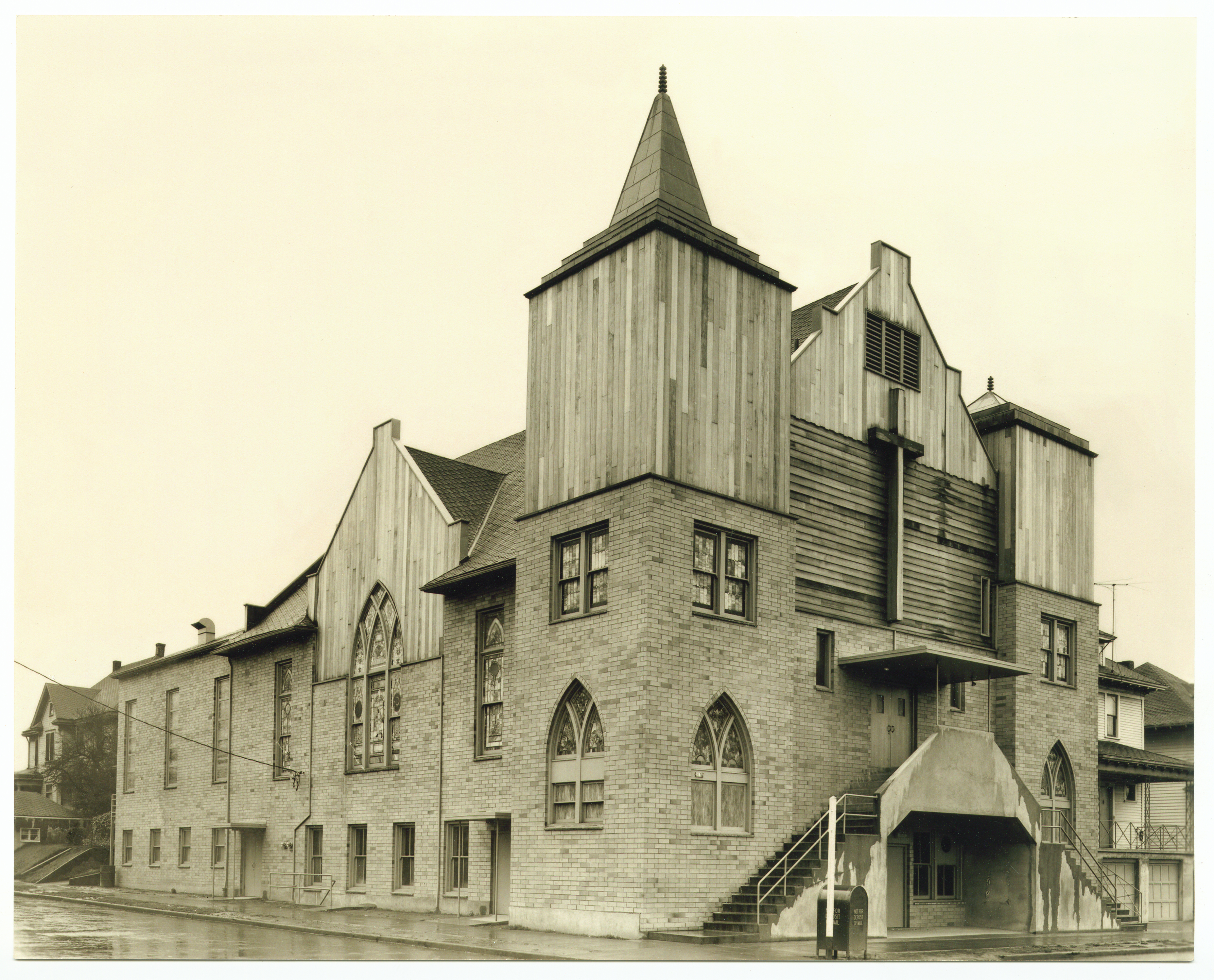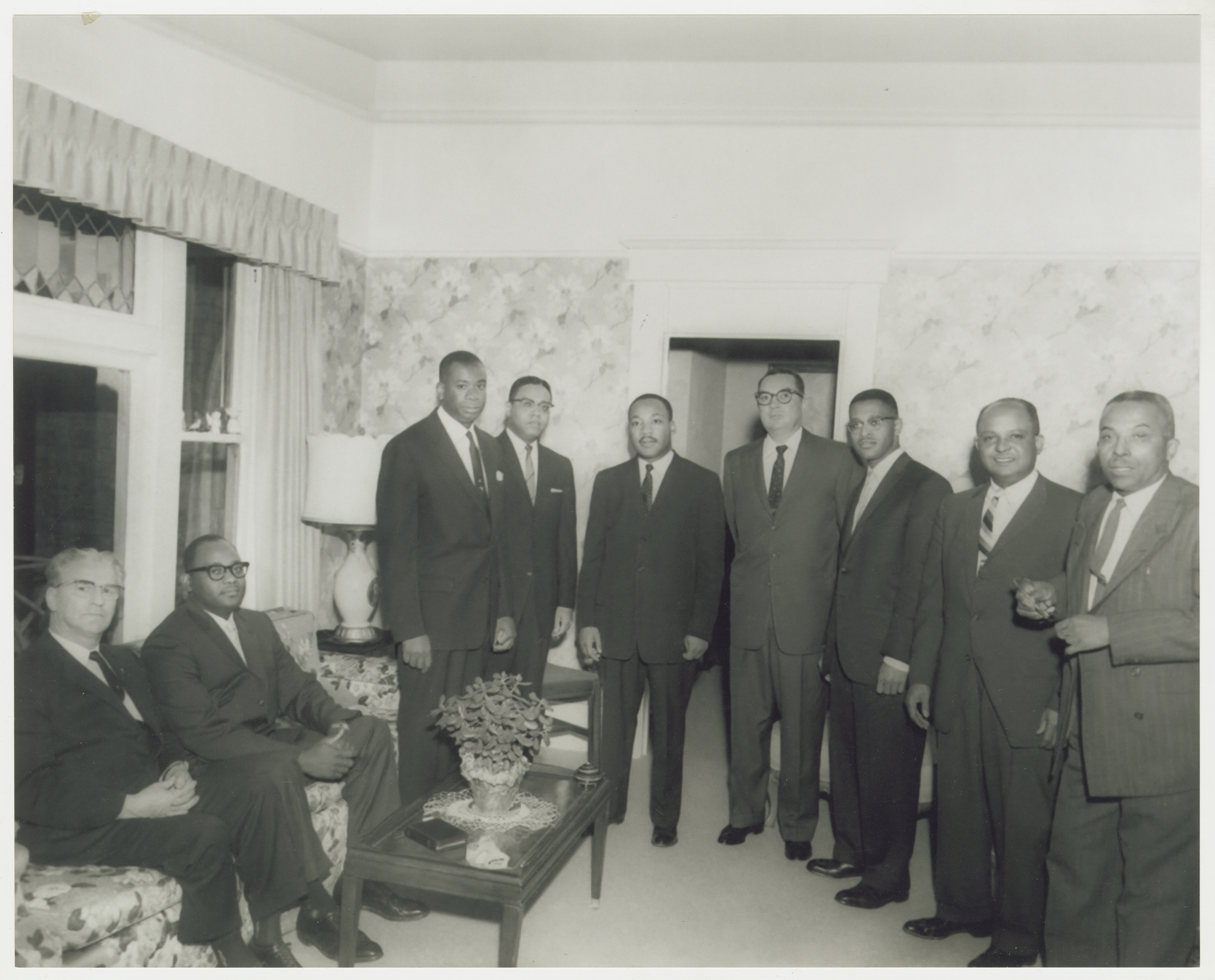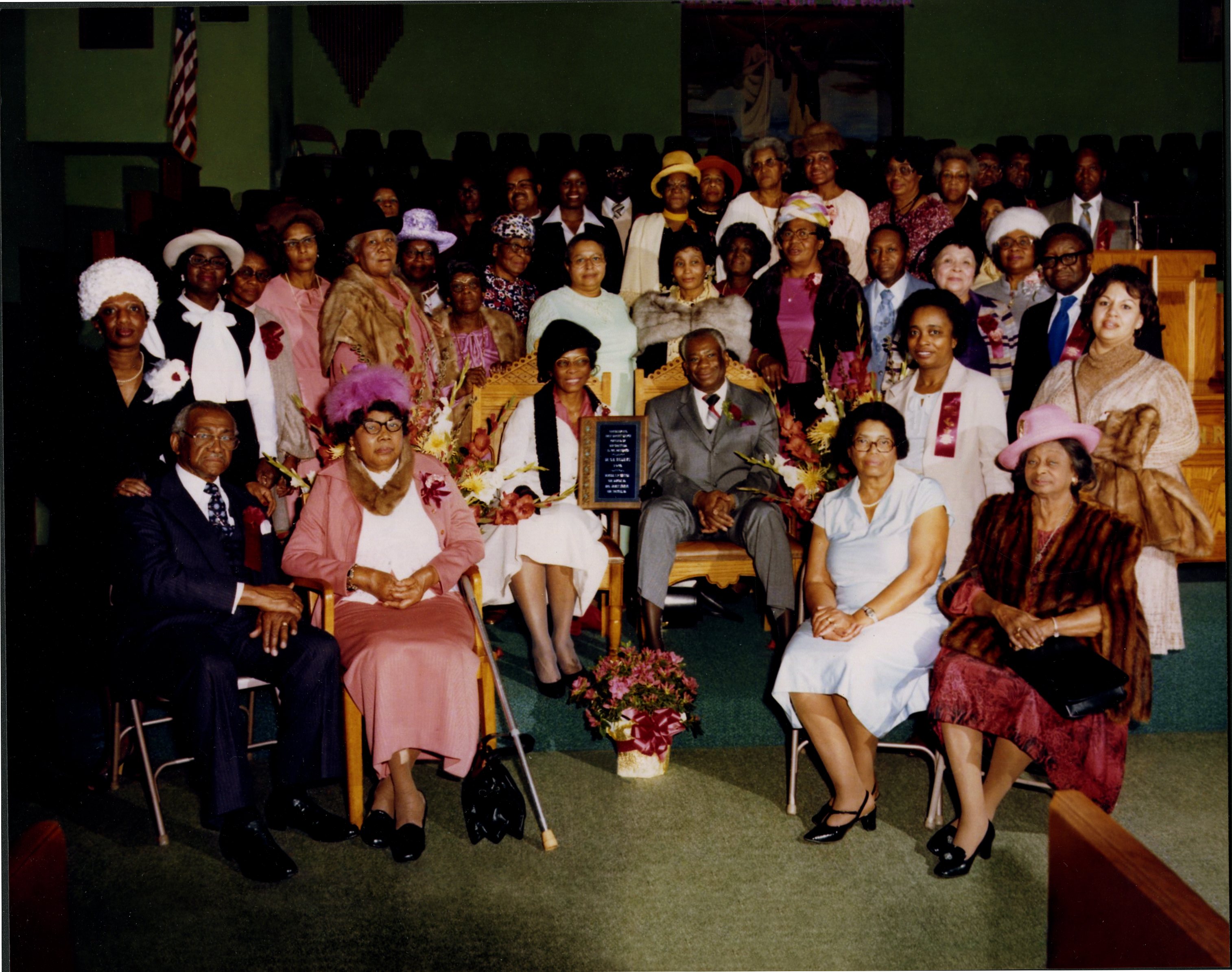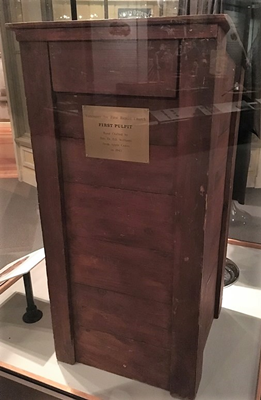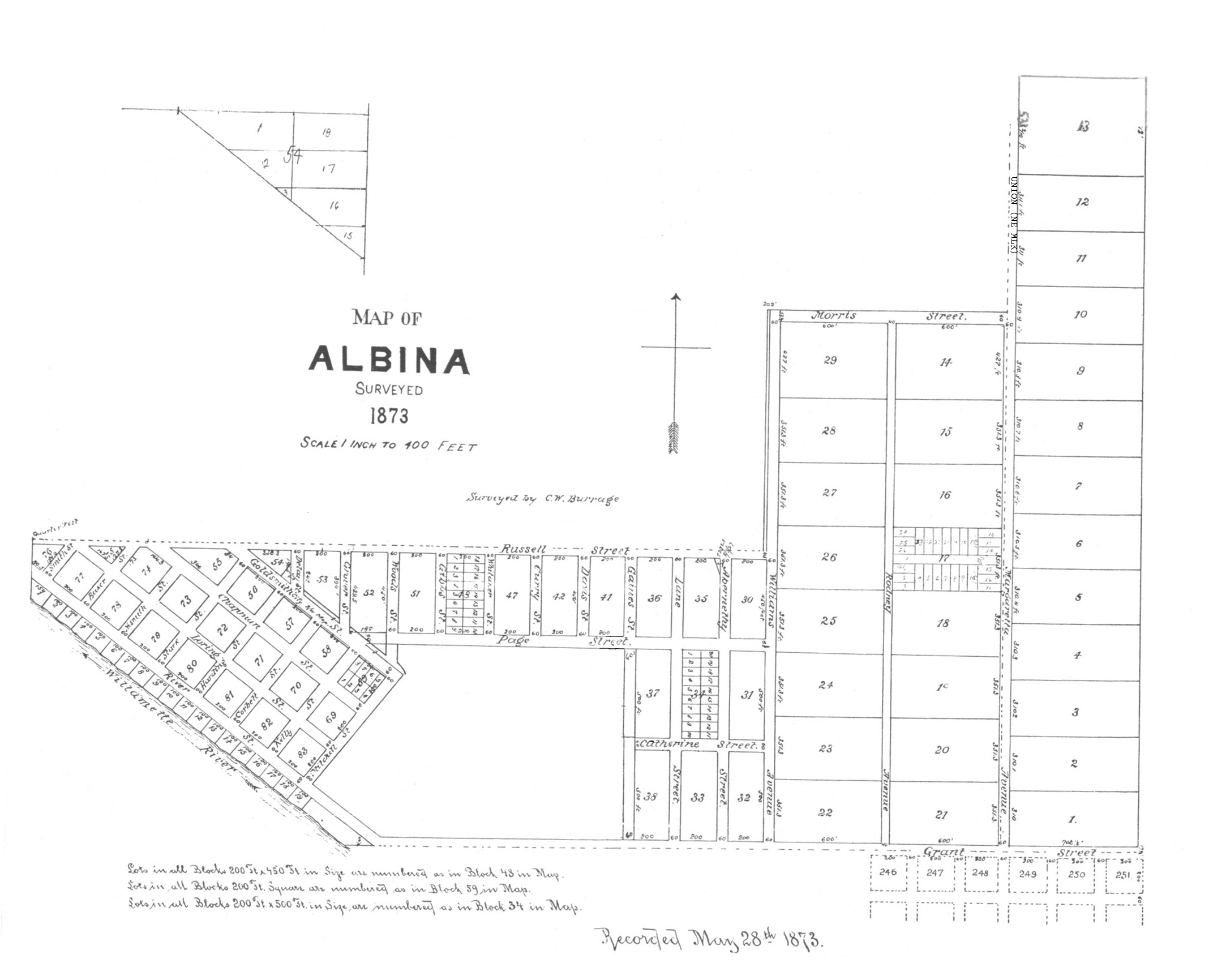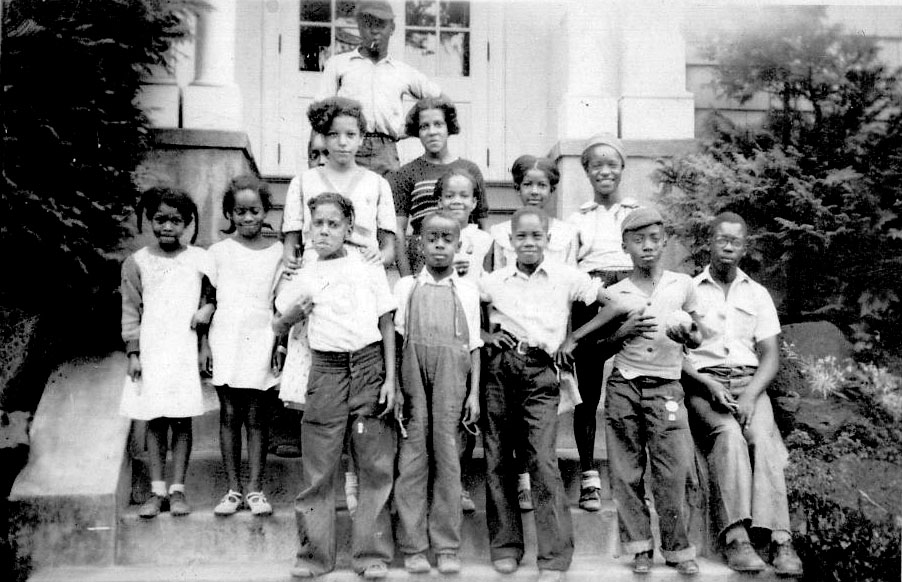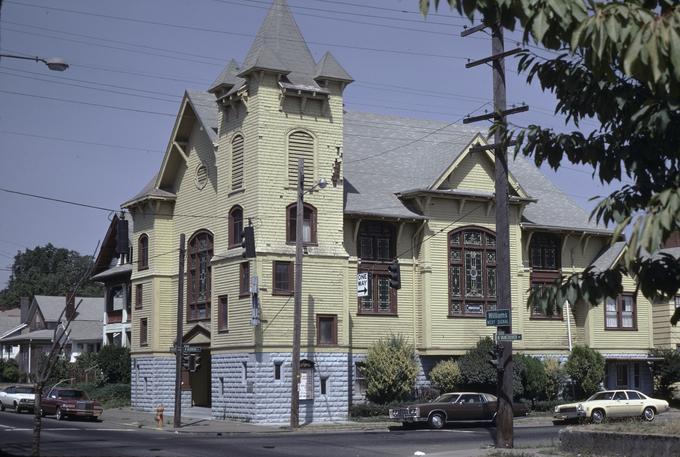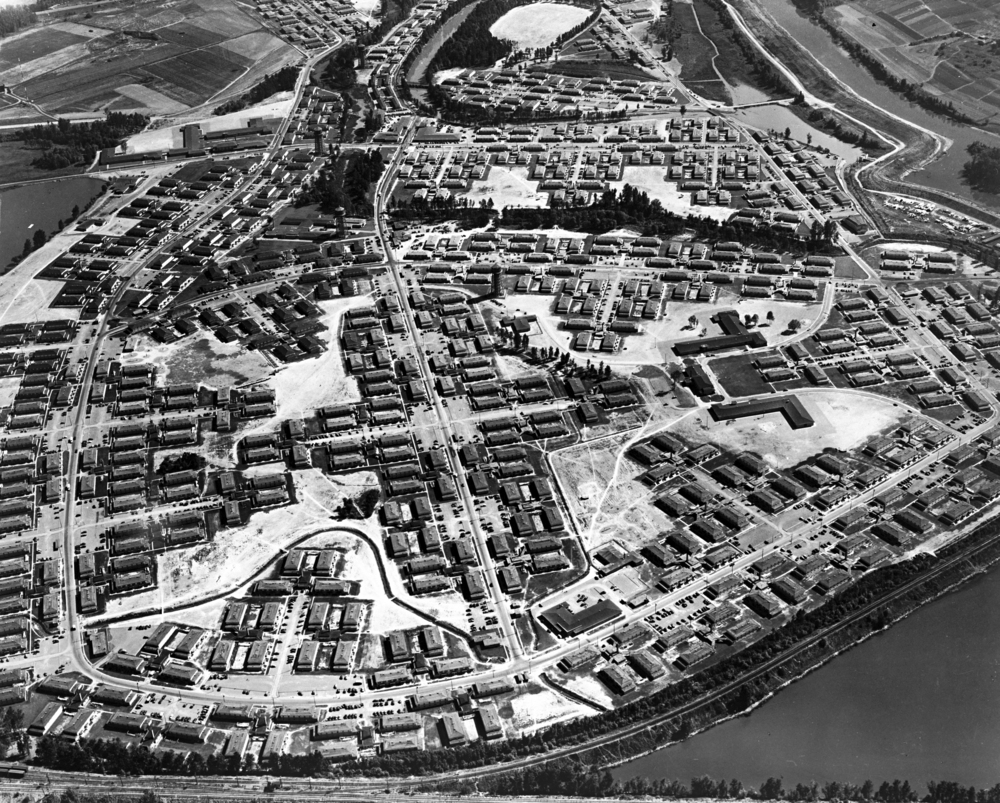The history of the Vancouver Avenue First Baptist Church of Portland is entwined with the history of Oregon’s African American population. In September 2016, the church building was listed on the National Register of Historic Places for its prominent role in the Civil Rights Movement and for its social significance to the city, the state, and the Pacific Northwest.
Vancouver Avenue First Baptist Church has its origins in Burton Homes, a federal wartime housing project for shipyard workers in Vancouver, Washington. Established as a small Sunday School mission by Black residents in 1944, the congregation became the First Baptist Church in March of that year and was led by Reverend William James Brown. In April 1945, Reverend Oliver Booker “O.B.” Williams was ordained as minister of the congregation. He served the church from 1945 until his death in 1993. The Reverend Amzie Bailey succeeded him in 1994.
Not long after the end of World War II, Kaiser Shipyards closed its yards and ended its management of wartime housing projects, including Burton Homes (now a residential neighborhood in Vancouver). The church congregation relocated to Bagley Downs, a nearby housing project open to Black residents. When Bagley Downs was dismantled to make room for real estate investment projects in 1946, about seventy-five members of First Baptist Church relocated to the Prince Hall Masonic Lodge at the corner of Northeast Russell and Rodney Streets in North Portland. There, church members voted to merge with the St. James Baptist Church.
By November 1946, the congregation of two hundred members raised $5,000 to renovate a condemned apartment building at the corner of North Vancouver Avenue and Hancock Street. They incorporated as the Vancouver Avenue First Baptist Church and held a dedication ceremony on May 18, 1947, with much community fanfare.
Following the loss of Vanport City (also a wartime housing project with a significant Black community) in a flood in the spring of 1948, church membership doubled in size. Many displaced African Americans moved to Albina, as red-lining segregation practices in Portland prohibited Blacks from buying property in most parts of the city. The growing congregation developed an organizational structure with active support groups and social service programs to meet the needs of its new members.
Vancouver Avenue became part of the National Baptist Convention of America in 1948, placing it on the national map. Membership continued to grow, and by 1950 Reverend Williams was seeking larger accommodations. He found it just blocks away at 3138 North Vancouver Avenue, the former location of the Central Methodist Episcopal Church. When the congregation took possession of the property in March 1951, it was one of the largest property acquisitions made by African Americans in Portland after World War II.
The Central Methodist Episcopal Church had been built in 1909, designed in the Gothic Revival Style by Portland Architect Richard H. Martin Jr. The building cost $25,000 and could accommodate six hundred worshippers. It had twenty-nine stained-glass windows designed by the Povey Brothers Studio, hand-carved oak pews, and a suspended mahogany balcony. Those features, along with some original furnishings and light fixtures in the main sanctuary, remain to this day.
Between 1951 and 1955, Vancouver Avenue First Baptist Church had twelve hundred members, the largest African American congregation in the Pacific Northwest. By 1956, the building had become too small, and the church expanded its footprint, encasing the Gothic structure in brick to make room for eight hundred people. To renovate and remodel the building, Reverend Williams took out a personal life insurance policy of $100,000. Architect Hubert Athling Williams designed the alterations in 1956, and the building was rededicated in March 1958, with a cornerstone laid to mark the occasion. Portland had fourteen Black Baptist churches in 1962, and Vancouver Avenue had the largest congregation.
As the ministry continued to grow, so did the church’s prominent position in the community. It championed the cause of civil rights, education, fair housing practices, community healthcare and welfare issues, voter registration, and employment opportunities. It supported and hosted public rallies and town hall meetings and was a meeting space and collaborator with organizations such as the Urban League of Portland, the Albina Ministerial Council, the Albina Neighborhood Council, and the Greenfingers Project (a community garden project).
The church’s leadership took a strong position on civil rights and invited national leaders to speak. Dr. Martin Luther King Jr. gave a sermon at the church in 1961; John Lewis, national chairman of the Student Non-violent Coordinating Committee, spoke there in 1963; and Roy Wilkins, executive director of the NAACP, spoke in 1964. More than fifteen hundred people, including state officials, attended the memorial for Martin Luther King Jr. at the church in 1968. In 1983, presidential candidate Jesse Jackson made a campaign speech there.
The Vancouver Avenue First Baptist Church has over 400 active members (2016) and continues to be a significant place for worship, community gatherings, and social activism. The church maintains a scholarship fund (known as the Drum Major event) for North Portland students. Music is an important part of services, and the church has four worship choirs. Pastor J.W. Matt Hennessee has been the pastor since 2005.
-
![]()
Vancouver Ave First Baptist Church, Portland, 1958.
Courtesy Oregon Hist. Society Research Lib., bb011213
-
![]()
Martin Luther King, Jr., visits Vancouver Ave. First Baptist, 1961..
Courtesy Oregon Hist. Society Research Lib., bb017001
-
![]()
Rev. O.B. Williams and his congregation at his 30-year anniversary party, 1975..
Courtesy Oregon Hist. Society Research Lib., Coll 189, box1, f3
-
![Affixed to the front of the pulpit is a small plaque that reads "Vancouver Avenue First Baptist Church First Pulpit Handcrafted by Rev. Dr. O.B. Williams from Apple Crates in 1945".]()
Related Entries
-
Albina area (Portland)
By the late 1880s, Albina, located across the Willamette River from Por…
-
![Black People in Oregon]()
Black People in Oregon
Periodically, newspaper or magazine articles appear proclaiming amazeme…
-
![First African Methodist Episcopal Zion Church]()
First African Methodist Episcopal Zion Church
First African Methodist Episcopal Zion is Portland's oldest African Ame…
-
![Vanport]()
Vanport
In its short history, from 1942 to 1948, Vanport was the nation’s large…
Map This on the Oregon History WayFinder
The Oregon History Wayfinder is an interactive map that identifies significant places, people, and events in Oregon history.
Further Reading
Raymond, Burell III. O' How I love Jesus: A 45 Year History of Vancouver Avenue First Baptist Church. Portland, OR.: The Church, c. 1990.
Raymond Burell III. Vancouver Avenue: Yesterday, Today and Forever: Celebrating 65 Years as a Spiritual Landmark. Portland, OR: Vancouver Avenue First Baptist Church, 2009.
National Register of Historic Places Registration Form.

